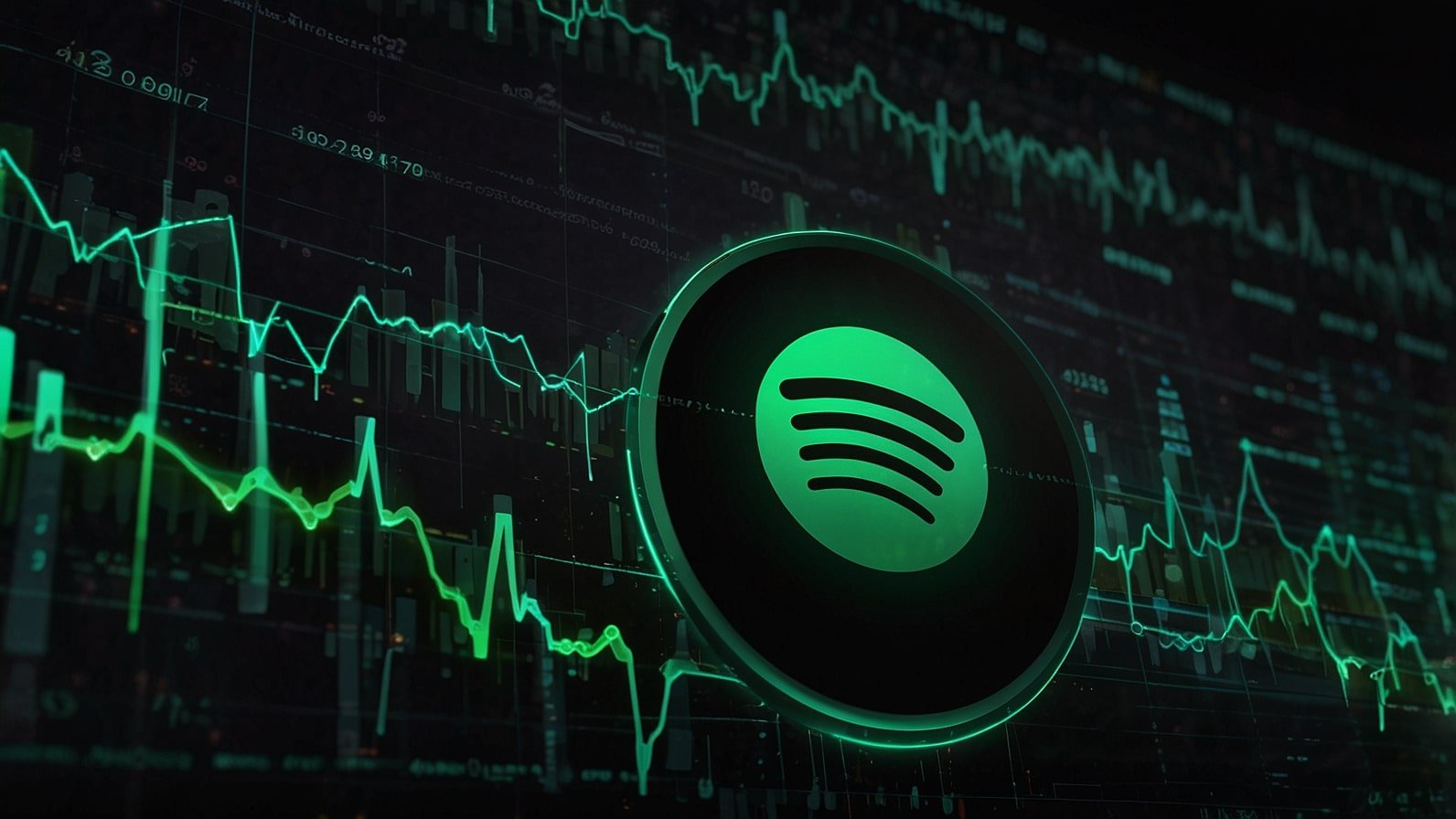Spotify Founder Ek Steps Down as CEO: Bold Move to Drive Long-Term AI and Growth Strategy

Spotify, the music streaming giant, has undergone a seismic change with the announcement that Daniel Ek, the company’s long-time CEO and co-founder, will no longer hold his top executive position, effective immediately.
Ek, who has guided the company through its troubled teenage years to a valuation worth 70 billion dollars, will assume a job as a strategic overseer aimed at innovation, specifically, AI-driven personalisation and new audio technologies.
It is a shocking announcement, unveiled through a company memo and earnings call today, that highlights the aggressive direction that Spotify is taking into an intelligent-algorithms-driven future and globalisation, which has investors and users wondering what happens next to the platform that changed the way the world listens.
His tenure, which has taken a period of more than 15 years, has been characterised by continuous disruption. Since the introduction of the freemium service that connected billions of people to the wrangles over major artist and label deals, he turned Spotify into a cultural powerhouse out of a scrappy Swedish startup.
Monthly active user numbers shot up to over 650 million during his tenure, and the number of premium subscribers totalled over 250 million a 15% growth over the previous year with the introduction of podcasts and audiobooks. However, it has, up to recently, never been profitable, and the first yearly profit of the company was in 2024 through brutal cost-cutting, such as 1500 firings earlier this year.
During his farewell speech, Ek mentioned that there was a need to have new leadership to face the increasing challenges. He wrote that Spotify is at an inflexion point. We have developed the base, and it is time to go big with bold AI and creator economy bets.
He is replaced by internal rising star Gustav Soderstrom, now Chief R&D Officer, who is mandated to speed up all these initiatives. Soderstrom, who has worked at Spotify since 17, has also helped the company create such AI-based features as the DJ mode, where hyper-personalised playlists are generated by using natural language processing.
AI Ambitions Take Centre Stage: From Playlists to Predictive Experiences
The artificial intelligence is the final curator of Ek’s and Soderstrom’s vision. The AI investments in Spotify have already paid off, with such hits as AI Playlist, creating custom mixes based on users’ prompting them to get an upbeat song to listen to on a rainy commute.
However, the current announcement introduces EchoMind, a state-of-the-art system, which is going to be available in the beta version in a month. EchoMind, built using OpenAI and Google DeepMind, suggests real-time predictions on listening moods using device sensors and voice recognition, and proactively replaces queues to overcome decision fatigue – an issue Ek notoriously called the paradox of choice.
It is not technological friendliness, but an instantaneous money generator. On a desktop-based, ad-supported level, with competitors such as Apple Music and YouTube Music threatening its presence, AI has the potential to increase engagement by a quarter, according to internal estimates, and open up additional monetisation channels.
Consider dynamic pricing of live concerts, recommendations, or human-coach karaoke sessions along with premium upsells. Soderstrom mocked AR glasses with the ability to expand into spatial audio, AI-generated remixes, and framed Spotify as a multimedia system, not just a streaming one.
The time is consistent with the current industry trends. Spotify AI moat may be reinforced as TikTok pursues music licensing agreements and Alexa strengthens itself with generative music.
Morningstar analysts rejoice that the shift is timely, as Ek has a 7-per cent equity stake, which provides continuity, and Soderstrom has a tech-first culture, which provides agility. The stock declined 2 per cent during the morning session but recovered to 1 per cent by the end of the day, showing confidence in the market.
The Changeover of Leadership: Surviving Change
It does not mean Soderstrom has gone without risks in ascending. He is 42 and untested as a public face, but his history tells it all: He led the $100 million takeover of podcast host Gimlet and incorporated AI into the Wrapped campaign of Spotify, which has 500 million shares each year. Ek will continue as a board member and chairman, offering advice on moonshot projects such as metaverse concerts- similar to his investment in a virtual venue start-up Wave in 2023.
The handover memo placed special focus on unity, as Ek was credited by the memo as having a relentless user focus. However, there are still murmurs of tensions along the boardroom with reports of disagreements regarding the ethics of aggressive AI rules, as the EU investigates the use of data.
Spotify has committed the so-called human-in-the-loop protection to EchoMind, yet activists lament the fact that algorithmic discrimination of artists can occur, marginalising the voice of the indies.
The ripple of the change is felt in the emerging markets across the globe. The localised AI of Spotify in India and Africa, where the company has a 40 per cent share, depends on the local dialects and cultural peculiarities. Soderstrom is first order: the doubling of R&D, to 2 billion in 2026, with 800 million users by the end of the decade.
Industry Echoes: A Wake-Up Call for Streaming Peers
The departure of Ek echoes through Big Tech. Netflix is just beginning its ride on the password-crackdown profits, and is looking at the AI playbook of Spotify as the binges they can build themselves.
Warner Music shares increased by 3 per cent, and this venture was in the hope of more appealing royalties under new management. Venture capitalists, in their turn, swarm audio startups; only yesterday, a project of 500 million dollars of AI sounds closed the doors with references to the model of Spotify.
This is, however, cautioned by critics of overreach. Work groups refer to the legacy of layoffs under Ek, and propose that they merit higher priority by Soderstrom than tech gimmicks, as creator payouts now comprise 70 per cent of revenues.
Spotify is praised by environmental watchdogs because of its carbon-neutral servers, but the energy-gulpingness of AI is called into question, as training a single model emits as much as a transatlantic flight.
Mapping the Future of Soundtrack
Ek is leaving, but not so much an end as a remix, as Spotify activates its next act. Under Soderstrom, it will be more swervy: AI is not a feature, but the frequency. It is a promise of discovery without slogging to the listeners; to the industry, a gauntlet thrown in the streaming wars.
In a competitive environment where attention has become the rarest commodity, the development of Spotify under new management has the potential to make innovation and intimacy work together. Whether it reaches the high notes or wobbles on the flatline, it is the track to watch–but one thing is definite, the beat is on, smarter and louder than ever.



